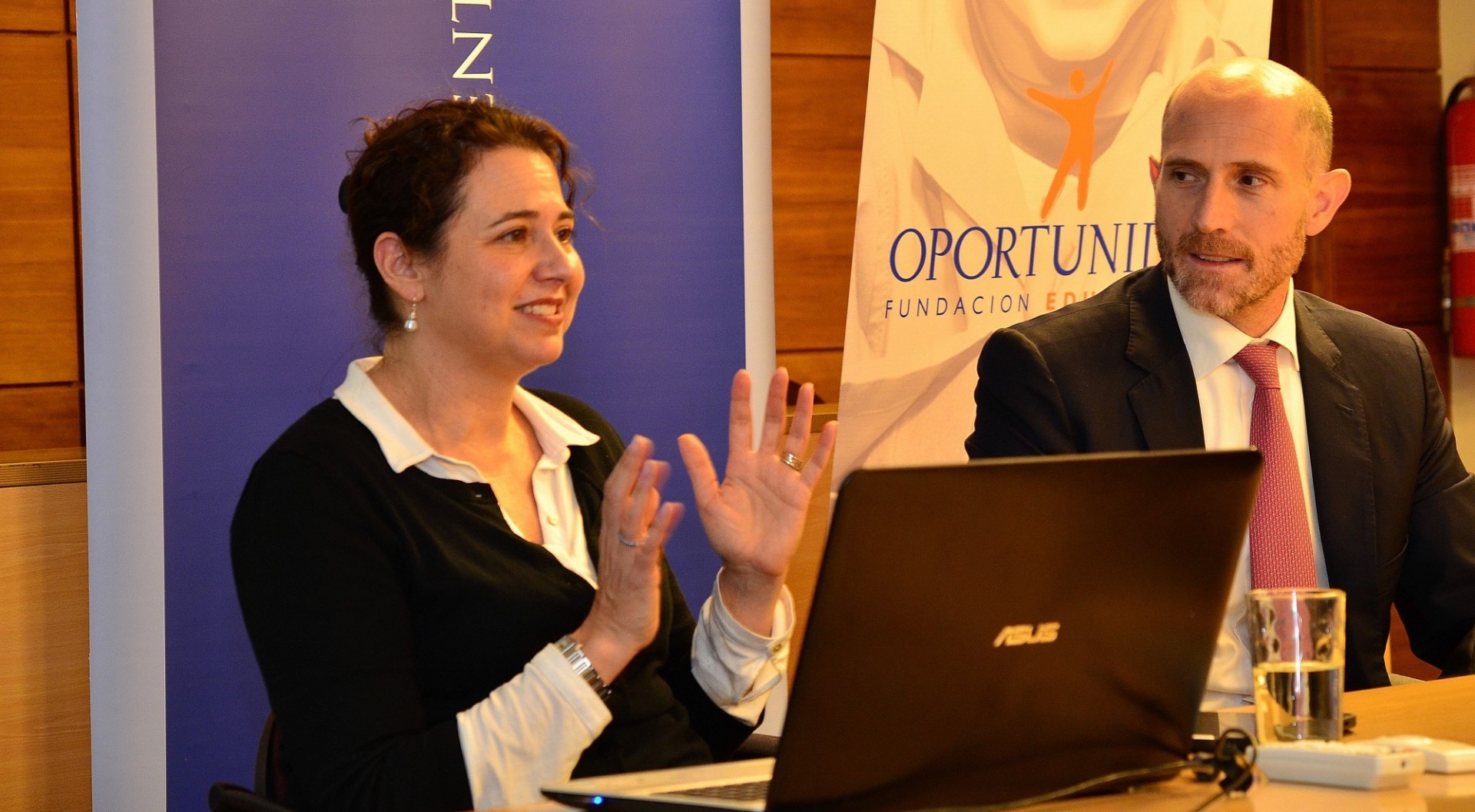“The most important decision you will ever make is choosing the right parents” is the quote with which Sandra Black, professor of Economics and International Affairs at Columbia, opened her “Investing in Kids” lecture mid-January in Chile to a room full of economists, child development experts and other professionals.
Black, a School of International and Public Affairs (SIPA) professor who has extensively studied the role of early life experiences on the long-term outcome of children, presented on how parents affect their children. She addressed the issue of “nature versus nurture” in determining children’s future wealth – if children are born different due to genetics, or if they are given more opportunities thanks to the environment in which they are raised.
The two issues are difficult to disentangle, as parents contribute to both, she noted. However, researchers have looked at differences between biological children and adoptees to separate nature versus nurture. Black herself studied the case of adoptions in Sweden, where the state handled all adoptions and kept information regarding the adoptees as well as the biological and adoptive parents, and carried out wealth and population registers. With this plethora of information, the data could be crossed and evaluated.
In Sweden, adoptive parents were positively selected as they tended to have higher education, income and wealth, while the opposite was true for adoptees’ biological parents. And in reviewing the data, it was found that adoptive parents’ wealth is nearly twice as important as that of biological parents in predicting children’s wealth.
The results demonstrate the importance of environment in early childhood and in identifying roles for policy to equalize the playing field when it comes to issues such as universal pre-schooling, health care and food programs, she said, but “there is still substantial work to be done to figure out the causal mechanisms” through which nature versus nurture operates.
The lecture was moderated by Peter Morse, Chief of Staff to the Vice Chairman of Banco de Chile and member of the Santiago Center’s board.

